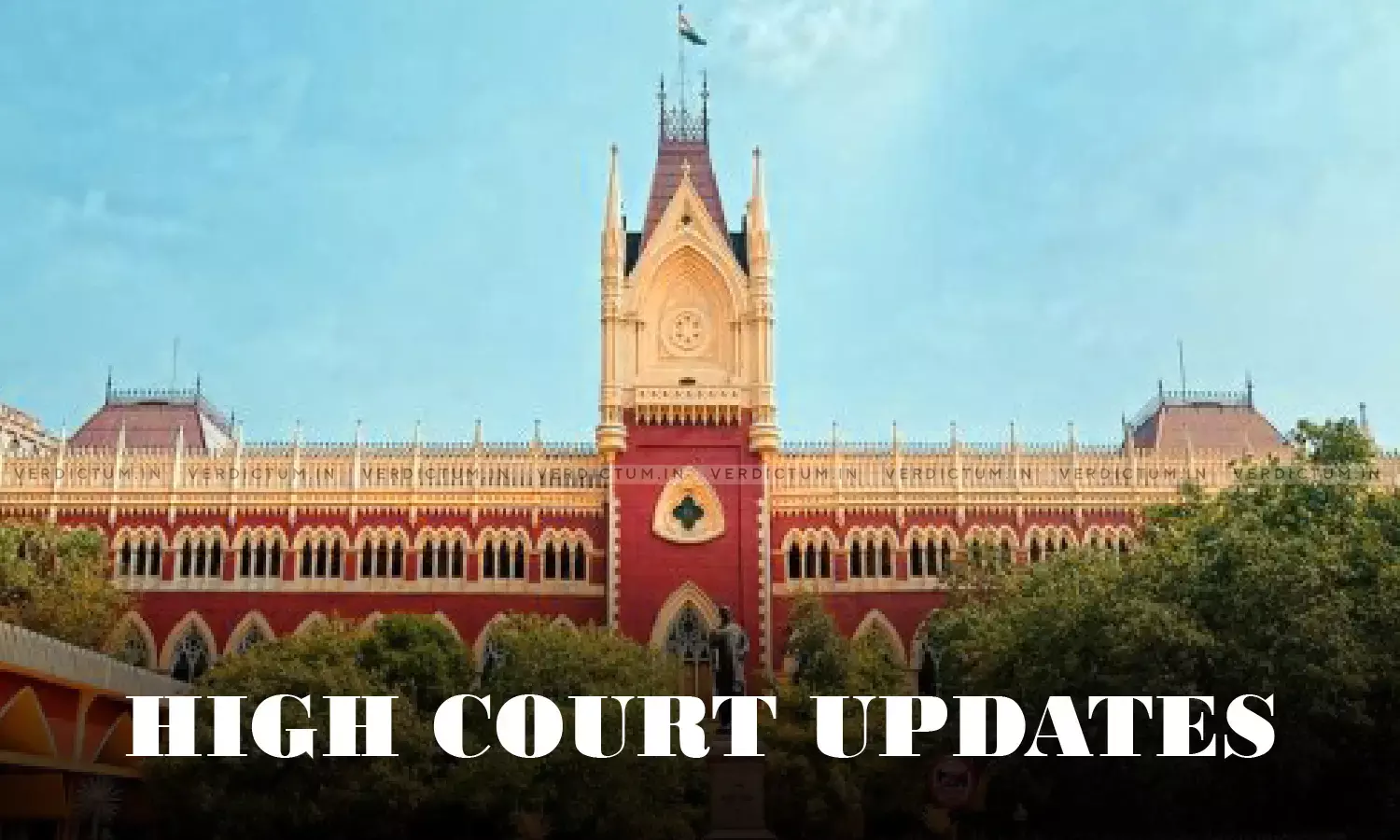No Automatic Arrests In Section 498-A IPC Cases: Calcutta High Court Issues Guidelines For Handling Domestic Violence Cases
The Calcutta High recently in a move aimed at curbing unnecessary arrests and detentions, has issued a set of comprehensive guidelines to be followed by law enforcement agencies and judicial authorities within the territory of West Bengal and Andaman & Nicobar Islands. This action follows the directives of the Apex Court, which emphasized the strict adherence to the guidelines established in the Arnesh Kumar case [Arnesh Kumar v. State of Bihar and Another] concerning arrest procedures.
The Notification issued by the Registrar General of the High Court says, "With the approval of the Hon’ble the Chief Justice, the following guidelines are framed by the High Court at Calcutta to be followed by the Sessions courts and all other Criminal Courts".
The main focus of the guidelines revolves around the prevention of arbitrary and mechanical arrests, particularly in cases registered under Section 498-A of the Indian Penal Code (IPC) and Section 4 of the Dowry Prohibition Act. The Court emphasizes the importance of police officers and magistrates exercising discretion and considering the necessity for arrest based on well-defined parameters.
Key highlights of the guidelines are as follows:
1. Conditional Arrests: All state governments are instructed to direct their police officers not to make automatic arrests when cases are registered under Section 498-A IPC. Instead, they are required to assess the necessity of arrest according to the criteria laid out in Section 41 Cr.P.C.
2. Checklist for Police Officers: Law enforcement officers are to be provided with a checklist that contains specific sub-clauses under Section 41(1)(b)(ii) Cr.P.C. This checklist serves as a reference to guide officers in determining whether an arrest is justified.
3. Documentation and Justification: When an arrest is deemed necessary, the police officer must complete the checklist and provide reasons and evidence justifying the arrest. This documentation will accompany the accused when presented before the magistrate for further detention.
4. Magistrate's Scrutiny: The magistrate, before authorizing further detention, is required to review the report furnished by the police officer and satisfy themselves about the grounds for arrest. Only upon recording their satisfaction can the magistrate grant detention.
5. Timely Reporting: A decision not to arrest the accused must be communicated to the magistrate within two weeks from the case's initiation. The Superintendent of Police can extend this period, if needed, with recorded reasons.
6. Notice of Appearance: In accordance with Section 41-A Cr.P.C., the accused must be served a notice of appearance within two weeks from the commencement of the case. This period can be extended by the Superintendent of Police with proper justification.
7. Consequences of Non-Compliance: Failure to adhere to the directions as mentioned above can lead to departmental action against the concerned police officers. Additionally, they could face charges of contempt of court, to be filed in the relevant High Court.
8. Judicial Accountability: Judicial magistrates who authorize detention without recording adequate reasons are also liable for departmental action by the appropriate High Court.
The Notification further reads that "The Hon’ble Supreme Court hasten to add that the directions aforesaid shall not only apply to the case under Section 498-A IPC or Section 4 of the Dowry Prohibition Act, the case in hand, but also such cases where offence is punishable with imprisonment for a terms which may be less than seven years or which may extend to seven years, whether with or without fine" and directs that the above directions of the Supreme Court shall be strictly followed.
The Supreme Court had on July 31, 2023, directed that both the High Courts and the DGP’s of all States shall ensure that such guidelines and Directives/Departmental Circulars are issued for the guidance of all lower courts and police authorities in each State within eight weeks from the date of Judgement.
The Court had emphasized the importance of personal liberty and the need for courts to be guided by overarching principles when deciding whether to grant bail and issued a set of directions to all state governments and high courts to prevent the misuse of Section 498A of the IPC, which deals with cruelty to married women by their husbands or in-laws.




